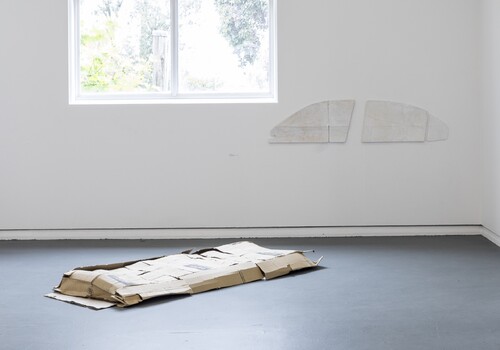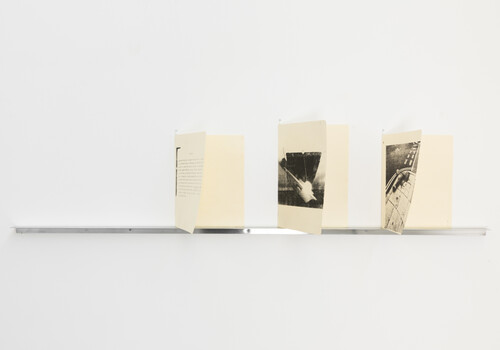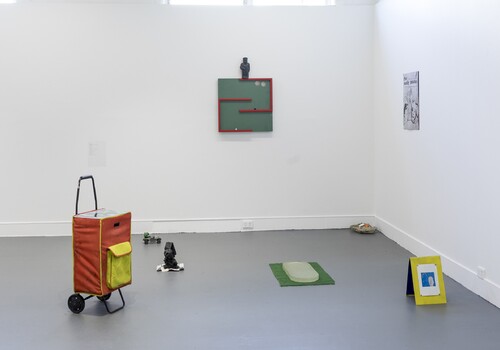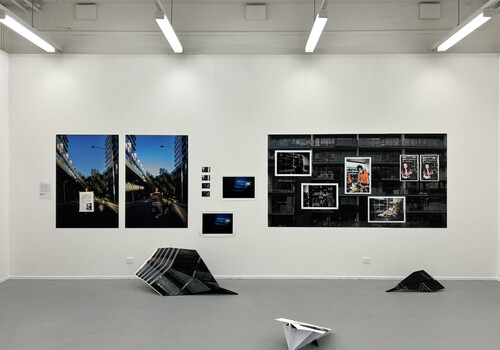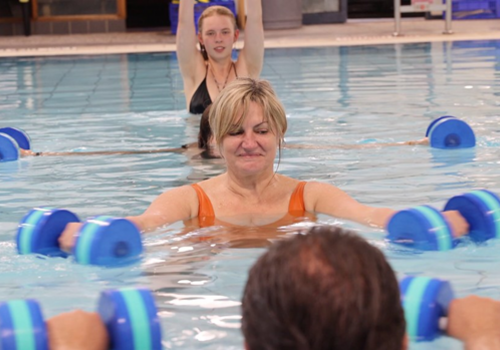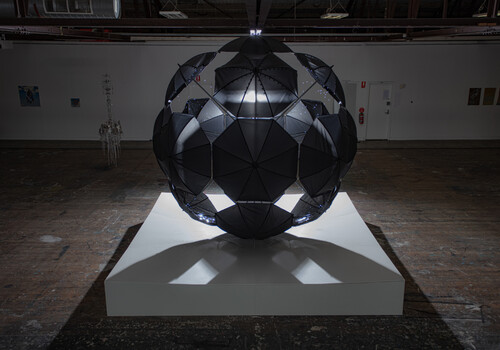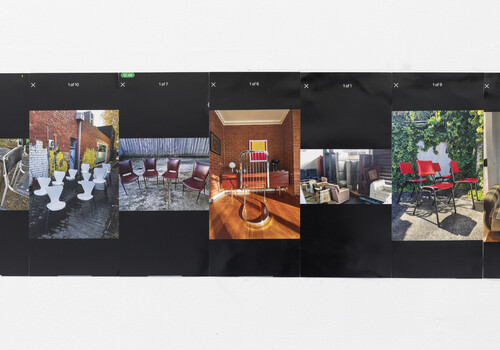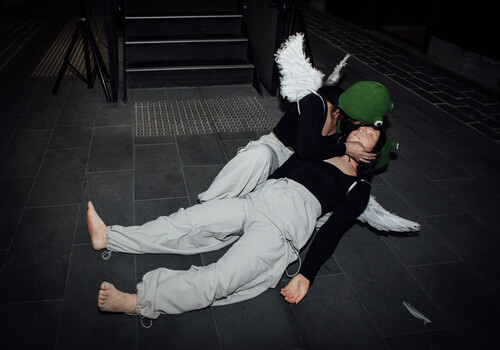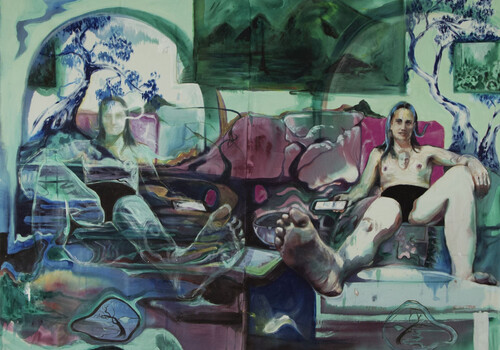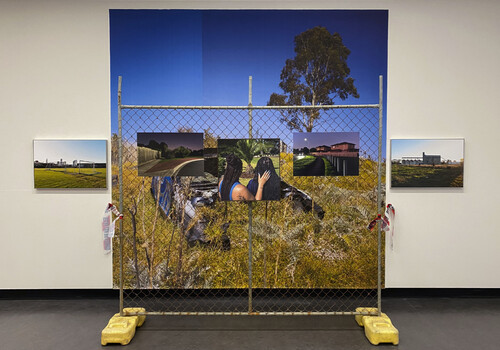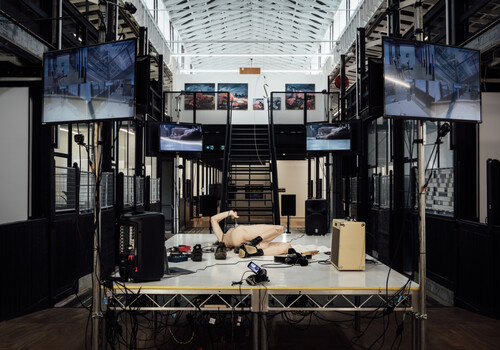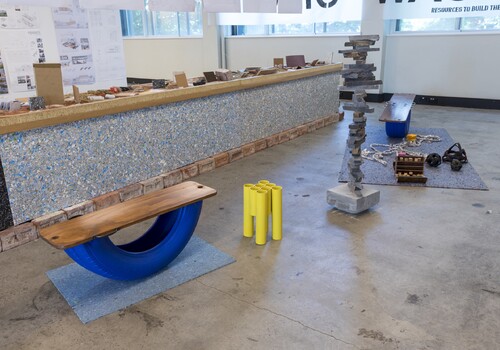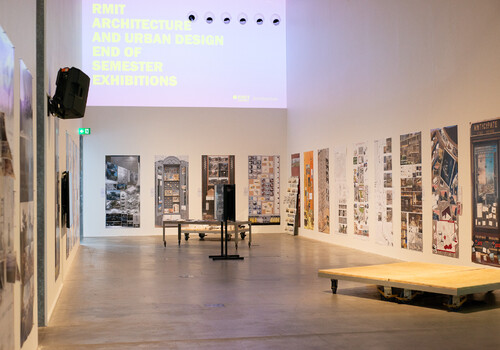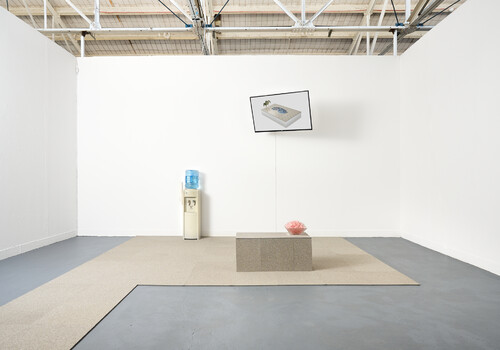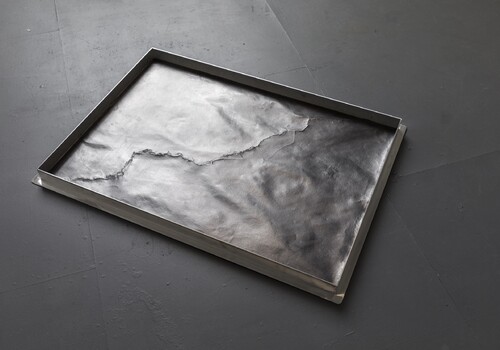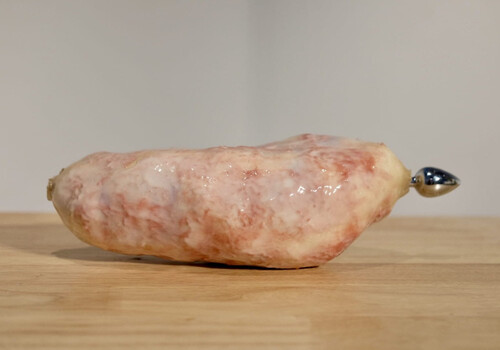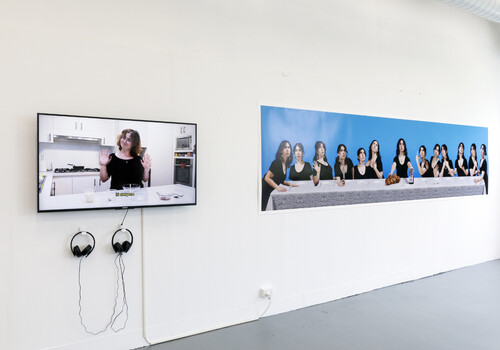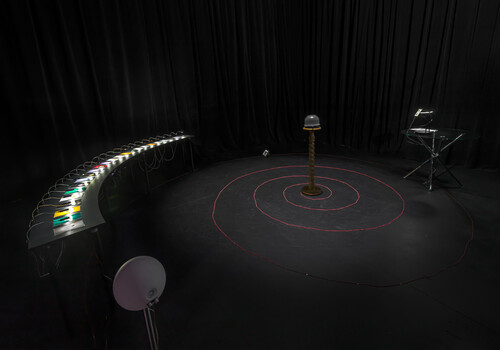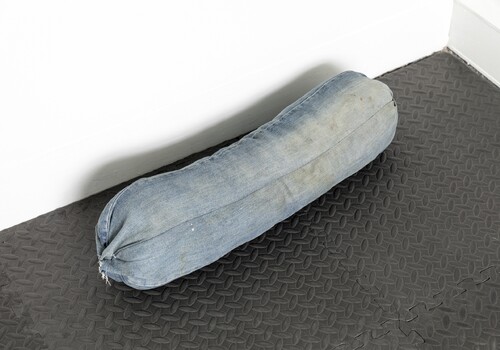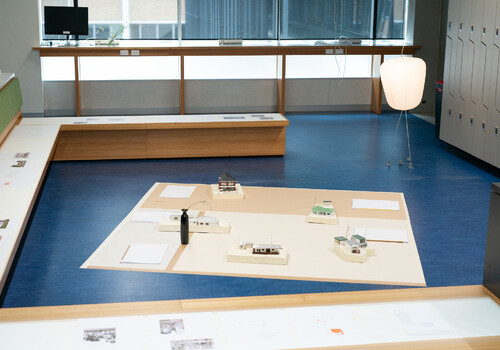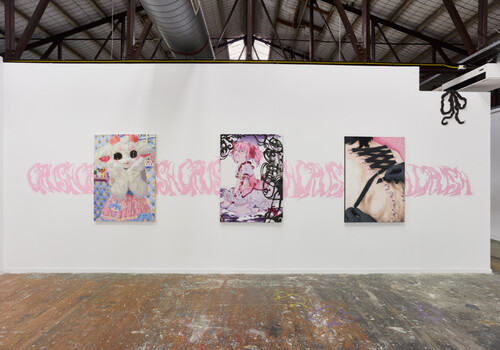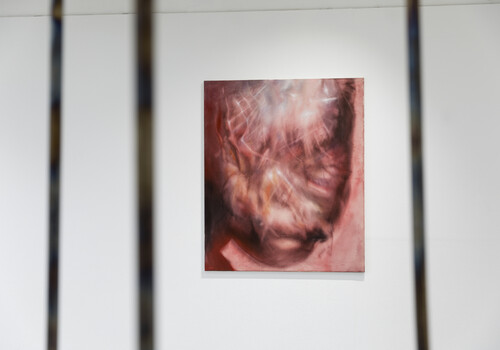Photography, RMIT
By Leah Shyra
Many readers may be familiar with the term “sonder”, a neologism that made rounds on the internet some years ago. For myself—and 45,855 other Tumblr users—John Koenig’s attempt to capture an existential, stranger-in-passing phenomenon has a particular resonance. Every so often it loops back around into thought, as it does while I wander through the RMIT’s graduate exhibition of photography.
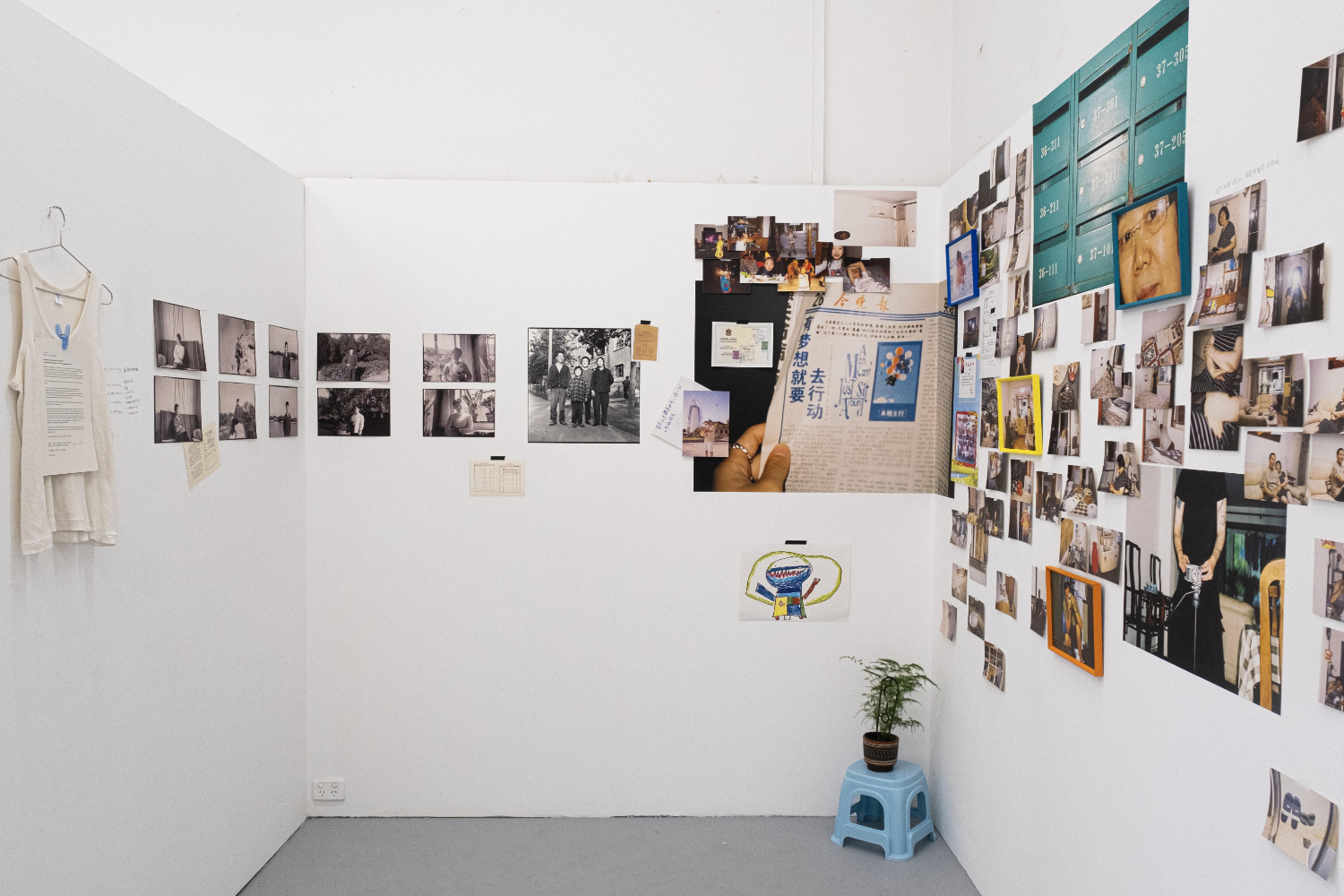
My eyes first trawl over Yi ‘11’ Zhou’s photographic installation, A Wobbly Fence Standing Tall (2023), where the humble family photograph takes precedence. Unlike the fine art photograph, these vernacular images are omnipresent and stylistically repetitive. Some are gently affixed by tape, and coloured frames hold others, their layers reminiscent of a scrapbook. There is a familiarity and warmth that exudes here—a comfort that swells deep in the belly. I linger for some time in this tangled chronology of images, objects and documents, searching for clues in recurring faces and repeating places. A conversation with 11 acquaints me further: to her father who smiles holding a digital camera, to her aunt who sets the table and makes the bed, to the apartment in Tianjin which became home to generations of family. On the right are large photographic prints of a landscape and shop window, their saturated reds, blues and greens alluding to the vibrant perception of a child. Through photography and the “wobbly fence” as a metaphor for the self, 11 explores their experience of diaspora identity and cultural dissonance. Though these stories are not mine, these photographs are far from deracinated—they exist, alive and embedded with life, context, and memory.
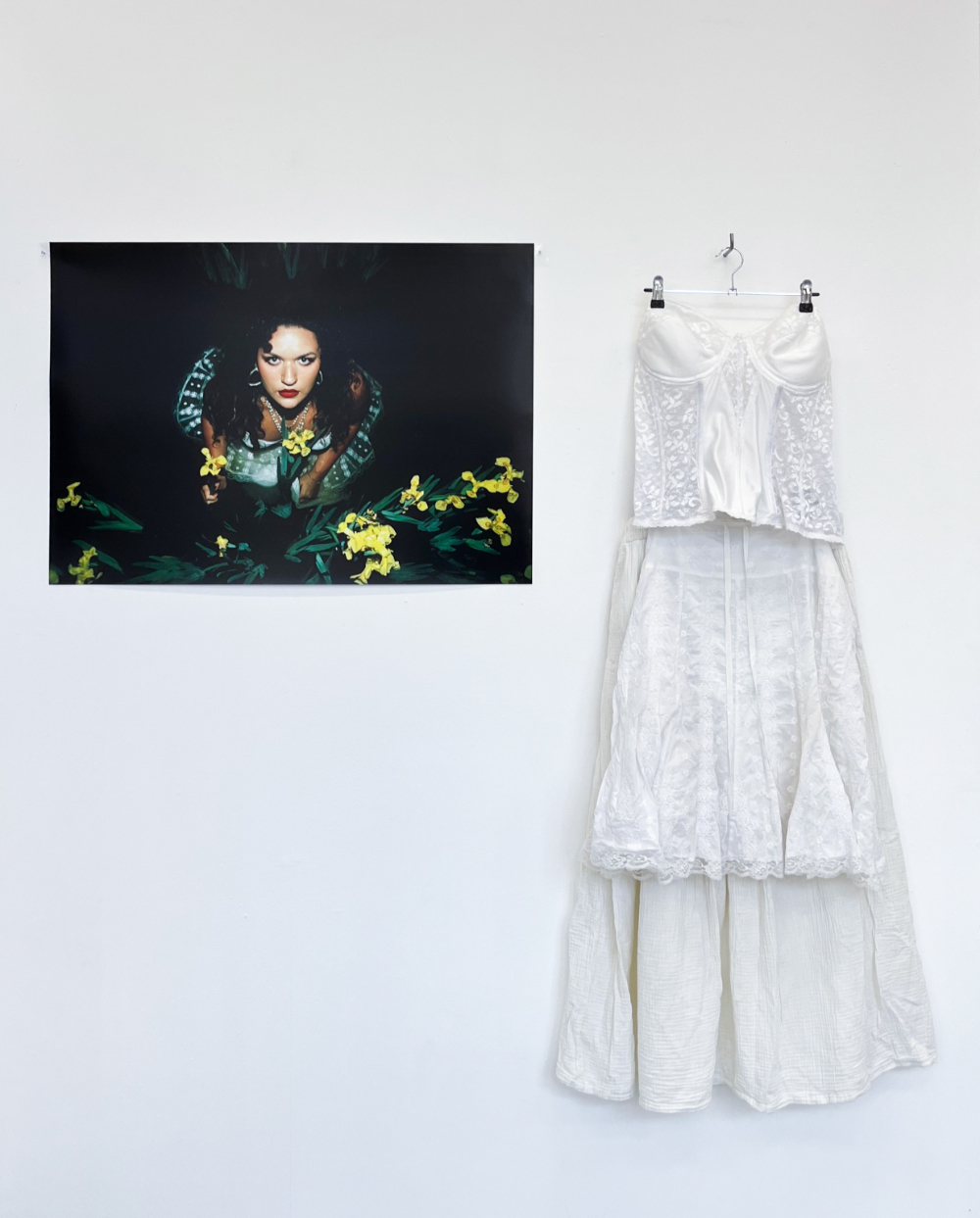
I carry this feeling close when wandering through Tanisha Wookey’s Knowing You (2023), a series of photographic prints positioned around a multi-wall installation space. At the entry point stands a closet, its opened doors and written statement inviting viewers to “uncover the link between the visual narratives and individuals.” Inside hang various garments, an amalgamation of aesthetics, with their pulls, frays, and alterations indicating histories of wear. The same applies to the closet itself—a transactional holding-place of memories—its scuffs and chipped-paint exterior hint that it has been relocated straight from a bedroom and into the show. Each portrait features a different individual as subject, centred in the composition, their eye contact locking on to the viewer’s gaze. Each individual’s garment in the photographs is brought by Wookey into the closet and physical gallery space. In reference to Nigel Shafran’s 1990s Teenage Mall Shoppers series, perhaps, Wookey’s photographs seem to sit in a category beyond that of the commercial fashion photograph, as both anthropological snapshots of youth and tender documentations of friendship and connection.
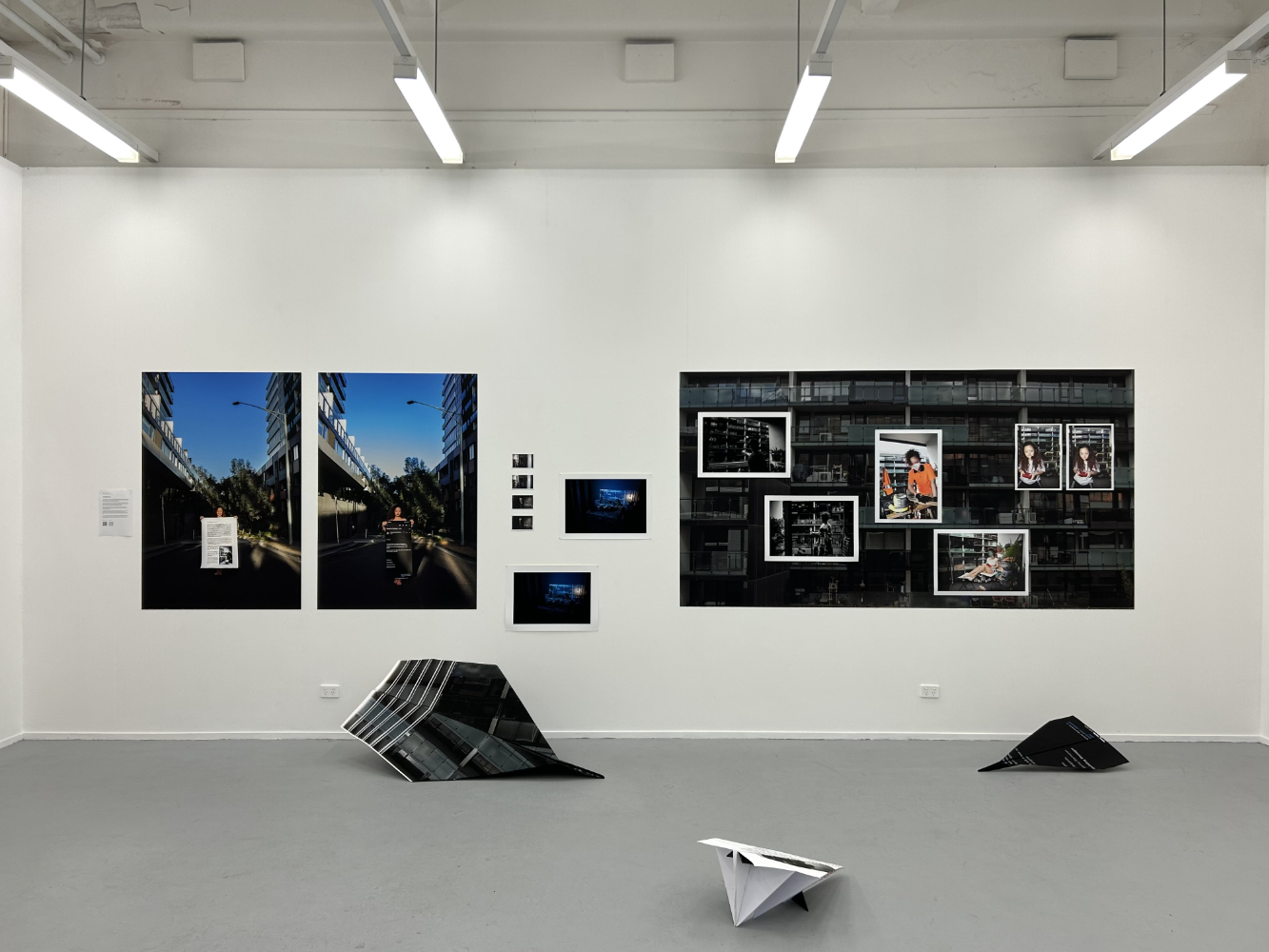
Next door, Zhuoyu (Bǫbbi) Gan brings me out onto the balcony of an apartment, her photographic installation Boundaries Theatre (2023) exploring a desire to connect with others through the complexity of stranger relationships, boundaries, and ethics. A large, low-saturated print shows a modern high-rise apartment facade, its banality disrupted by small slices of life: a cat tree, a bicycle, a populated clothes-rack. Pinned on top are images of Gan carrying out relatable aspects of her own daily routine. Three images take sculptural form as paper planes: symbols of anonymity, communication and distance. Gan’s project is tender and nuanced. It is a conversation between physical closeness and emotional distance, private and public, observer and observed. As I watch these artists observe and connect with others in their lives, I think of times where I do the same. I think of now, and my desire to connect with 11, Wookey and Gan through brief, flânerie encounters with their photographs. “Sonder” is the word that feels right. There is so much more here than what meets the eye.
Leah Shyra is an artist and arts worker living and working in Naarm/Melbourne. She has just completed her Bachelor of Fine Art at Monash University.
